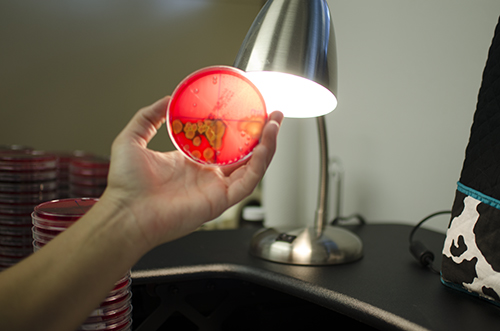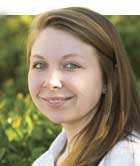
"Do not administer antibiotics to cows that will not benefit," cautioned Daryl Nydam, Cornell University, at the National Mastitis Council Regional Meeting.
Based on research from the University of Wisconsin, not all cases of mastitis should or need to be treated. Nearly 85 percent of mastitis cases can be classified as mild or moderate. These animals don't require systemic intervention, and delaying treatment 24 to 36 hours while waiting for culture results won't change the treatment outcome. The remaining 15 percent of cases should be treated immediately and systemically.
When deciding which mild or moderately classified cows to treat, producers have three paths to pick from:
- Guess and let God sort it out (no culture)
- Do it yourself (on-farm culture)
- Work with someone else (culture through a reference lab)
Culturing on-farm provides the data to back a treat/no treat decision in a timely fashion. "Growth or no growth readings have predictive values in the upper 90th percentile. Reserving treatment solely for cows with a positive culture can reduce antimicrobial use 25 to 30 percent," added Nydam.
On-farm culture works well when a reference lab isn't close by, but there are some pathogens, such as Mycoplasma, that can't be detected on-site. "On-farm culture also comes with an opportunity cost of valuable people's time," said Nydam. "Per 1,000 cows, a dairy needs two to three people who are good at culturing to keep it running year round." If a dairy chooses to culture on-farm, regular training is needed to minimize protocol drift, and equipment must be maintained to ensure accurate results.
With a reference lab, pathogen results are often reported within 24 hours of pickup, enabling producers to execute protocol-driven treatments.
Currently, seven antibiotics are FDA approved for intramammary use. "When choosing what tubes to use, first ask yourself how many times a day you want to work your hospital pen. Then, with your vet, pick something and stay on label," added Nydam.

Amanda Smith was an associate editor and is an animal science graduate of Cornell University. Smith covers feeding, milk quality and heads up the World Dairy Expo Supplement. She grew up on a Medina, N.Y., dairy, and interned at a 1,700-cow western New York dairy, a large New York calf and heifer farm, and studied in New Zealand for one semester.








